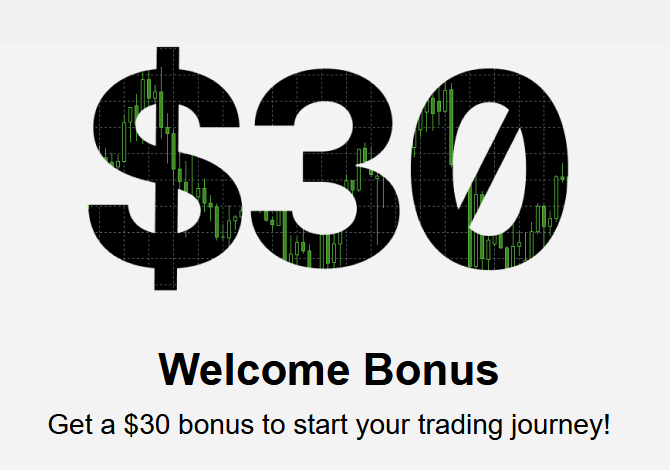With Forex trading, patience and perseverance will increase your chances of success, so take time to develop your trading strategy and keep practising with these 30 Best Forex Trading Tips to maximise your profits and manage your risks, as a beginner or professional.
What is Forex Trading?
Currencies are exchanged in high volumes on the Foreign Exchange Market with the hopes of making a profit. Forex markets are the largest markets in the world, with $6 trillion moving through the markets on a daily basis and over 9 million traders globally.
Why do people exchange currencies?
- Commerce: Buying and selling currencies to make a profit.
- Trading: exchange rates impact imports and exports. Forex traders can control these rates by changing the prices of currencies
- Tourism: exchanging currencies when travelling between countries.
What can you do to become a successful Forex trader?
The harsh reality is that only 10% of traders make profits consistently over time. Many Forex enthusiasts enter the markets thinking that there is a shortcut to getting rich or that bigger investments will return greater rewards.
The truth is that successful traders need to be able to make critical decisions based on sudden price movements, while also considering long-term changes and how a market has evolved over time.
They research currencies and markets extensively before making investments or traders and use tested strategies to guide their decision-making processes.
The remaining 90% of traders often lose hope after the first few losses, but Forex markets are unpredictable, and risk and reward run parallel with every trade.
There is, however, an incredible library of educational content online, dedicated to teaching new traders how to trade successfully and responsibly.
Most brokerages are regulated and licensed by international financial bodies to prevent malpractice and exploitation and choosing the right brokerage for you is another essential factor of success.
What are the top factors of success in Forex trading?
- Objective decision-making
- Management of your emotions
- The courage to take risks
- Perseverance and trusting yourself
- Setting realistic goals within your budget and capabilities
- The ability to make effective decisions on the spot
Here are 30 of the best Forex trading tips from successful Forex traders:
Understanding yourself
Getting to know yourself means understanding what your goals and desires are, what you fear and what you are willing to tolerate, and the willingness to fail before you succeed.
Understanding what your strengths and weaknesses are will assist you in choosing currencies and markets that resonate with your personality.
It is critical to create a risk profile before you start trading. This will help you to identify your capabilities and limits as a trader and prevent any unnecessary losses or over-commitments to trades and investments.
Defining your goals and choosing your trading style
The success of your trading journey will depend on your trading style and the strategy you use with it. Before you can choose a strategy or develop your trading style, you need to define your trading goals and the milestones you hope to achieve.
The six main styles of trading are scalping, day trading, swing trading, position trading, algorithmic trading and event-driven trading.
Choose your broker wisely
Finding a broker that offers the tools, educational resources and support you need, will significantly increase your chances of being a successful trader.
The broker you choose should align with your trading strategy and you should research, review and compare brokers before making any investments, to ensure that the brokerage is licensed, regulated and legitimate.
When researching brokers, take note of their pricing structures and fees, the types of accounts they offer, the regulatory bodies they are compliant with, the selection of tradeable market instruments available, and the platforms they are compatible with.
Choose the right trading platform
There is an exciting variety of trading platforms available, each with its own set of tools and features.
Choosing a platform will depend on your accessibility requirements and availability of internet access, whether you are interested in developing your own trading algorithms using different programming languages, and the type of trading model you prefer in terms of desk dealing.
It is often wise to choose the most popular trading platform, like MetaTrader or cTrader, as there is a greater community to join and plenty of online resources and video tutorials to teach you how to use these platforms.
However, many brokerages have taken the initiative to develop their own platforms, based on the specific needs of their clients.
These proprietary platforms are impressively competitive and contain all the essential tools needed by traders.
Develop your own strategy
The purpose of using a strategy is to clearly define your profit goals and risk tolerance levels, as well as developing methods for trading and criteria for evaluating your activity and progress.
Having a diversified portfolio is an attractive goal for many traders, but every trade should be made within the parameters of an action plan to avoid impulsive trading habits that fall outside your budget.
Practice every day
Using demo accounts will give you an opportunity to practice using some of the more advanced charting and analysis tools, and you will be able to test the effectiveness of your methods and develop your trading style, risk-free!
Learn step-by-step
Learning how to trade requires an understanding of trading terminology and key concepts, along with practicing.
Most brokerages have an educational library with instructional videos, e-Books and courses designed specifically for traders with different levels of experience.
Alternatively, you can be a CopyTrader and learn to trade by copying the moves of experienced traders. To do this, you will have to use a platform, such as MetaTrader, that supports this feature.
Managing your emotions
Being a successful Forex trader means knowing how to manage your emotions. It is easy to get carried away when things are going well. Trade based on what you know, not what you feel!
Controlling your emotions means knowing your limits and knowing when to stop. Your determination to succeed should not overpower your discipline and sense of judgment.
There’s no pressure!
Before you trade, always make sure that you are not feeling pressured or rushed. Trading in a state of distress may lead to making irrational decisions, which comes at a cost!
Responsible trading requires calculated risk-taking, so as long as you are following a strategy and trading within your risk parameters and budget, there should be no reason to stress.
Know what works for you
Trading effectively requires commitment and perseverance. Everything you learn will have some form of a learning curve!
You can develop a new skill within 20 hours to 6 months but mastering that skill will take up to 10,000 hours.
Set aside some time every day to either practice trading using demo accounts, by watching experienced traders or by researching markets and refining your trading strategy and style.
The Mind and the Market
Following market trends may be tempting, but sometimes the psychology behind those trends will impact how long they last, why they happen and what will happen next.
You need to develop an awareness of your responses to changes in the market and understand why you choose certain currency pairs, why you trade at certain times and what forces are driving your trades.
A risk worth taking
First, accept that you will lose money at some point in your trading journey, and then acknowledge that there is always a chance to succeed.
You have some level of control over how much you are willing to lose because you choose how much to invest, and you also choose how much to trade.
You can use Stop Losses to manage your risks and promise yourself never to exceed the limits of your risk tolerance.
Patience and Profits
Never rush yourself into making trades. Markets change constantly and there will always be another, if not a better opportunity, to trade again.
Be patient and take your time researching currency pairs, economic indicators and market trends. The secret is to take calculated risks.
Never stop learning
New trading tools are always being developed and markets change all the time because economies are never static, so it is important to always be curious about learning more.
There is no shortcut to learning how to trade, and it will require commitment and dedication to understand how trading patterns work, what market trends are and how to respond to all the changes and movements.
Find a broker that offers comprehensive educational material so that you can learn everything you need to know about Forex trading.
Take breaks in between sessions
Remember to take breaks if you are feeling overwhelmed. The Forex day trading environment is fast-paced and the pressure of making decisions on the spot with real money can lead to making irrational decisions or increased levels of stress.
Follow the trends
You should have at least a foundational understanding of market trends because they will help you to anticipate future changes in the market, which will give you time to adjust your strategy and react in time to prevent unexpected losses (or secure potential profits).
Seek competitive conditions
Choosing the right brokerage means choosing a broker with competitive spreads, affordable fees and superior execution speeds.
Plan in advance
The rule of thumb with Forex trading is to have realistic expectations. It is not necessarily a matter of getting out what you put in because you can lose everything you put in or multiply your investments significantly.
Planning in advance allows you to prepare for the worst by having alternative options if your strategy is not effective or if you have misinterpreted a trend or miscalculated a trade.
You can hope for the best but consider all possibilities before taking action!
Learn to read the charts
Charts represent the price changes of a currency pair over a period of time and they are also used to identify market trends.
Considering the fact that Forex trading is the buying and selling of currency pairs, it is essential to know how to read these charts so that trades are made at critical moments.
Reading price charts is also the first step to performing technical analysis, which forms the foundation of most trading strategies.
Responsible trading habits
Do not lie to yourself when you are trading. If you know an investment might put you into debt or trade could put you at great risk of losing your funds.
Do not convince yourself to take every chance because you have high hopes.
You have infinite opportunities to trade, but your chances are limited because your funds are limited!
The risk of greediness
Managing your funds should be one of your main priorities. If you have no funds, then you cannot trade.
Some traders consider using leveraged trading when they have limited funds available, but this creates liability and risks can double within a matter of weeks.
Develop a trading plan based on the funds you have available and avoid using everything at once.
Unless you are a high-volume trader with experience, making small, calculated trades over longer periods of time may prove to be more effective.
Use stop-losses
This tool can be used to automatically buy or sell currency pairs once they reach a certain price limit. This may cut your profits short, but it will certainly prevent any major losses.
Analyze your trades
Part of mastering a new skill is learning from the mistakes you make along the way.
Be honest with yourself when criticizing the trading decisions you make, consider the impact of those decisions and think of ways to improve them.
You need to monitor your performance if you want to succeed.
Experiment
Grow with the markets and learn to adapt. No market stays the same and prices are always changing, so find ways to adjust your strategy so that you are never caught off guard.
Try new methods and techniques once you feel comfortable experimenting with new tools.
Trading is like a vacation
Try to think of the money you spend on trading, as the same money you would spend money on a vacation.
You have a lump sum of funds available for different activities, but once the vacation is over, you’ve probably spent all the money.
Learn to make peace with small losses because it was not money spent in vain!
Positive feedback loops
When you trade according to your plan, you will begin to form a positive feedback loop. This loop is evidence that your trades are being executed strategically and will help you build confidence in your trading skills and it will diversify your portfolio.
Perform weekend analysis
Markets do not operate over weekends, so this time can be used to conduct market research, analyze charts and evaluate your performance during the course of the trading week.
Remember to check news updates and any major changes in economies around the globe.
Keep printed records
It might be helpful to file your research, notes and charts. This will give you an indication of what type of trader you are, which will help you to develop your trading style and refine your trading strategy.
Learning from your mistakes will give you the confidence and hindsight to make better decisions.
Budget
Set your trading goals within the framework of your monthly budget. Having the ambition to make millions over a few months is admirable, but you need to have the funds available to trade with and you cannot risk investing all your money overnight in hopes of making a hefty profit!
Budgeting will protect your funds and limit your risks. It will also help you to resist the urge to spend all your money on trading, especially if you’ve made some successful trades.
Journalise
Your trading journey is unique to you as an individual, and no trading journey will be identical.
Journalising your experiences and thoughts will give you an opportunity to discover more about yourself and teach you to cope better with disappointment and frustration.
It will also serve as a reminder of when you had good trading days and what you did to achieve success, and also serves as a point of reference that can be used when reading charts and developing strategies.
Conclusion
As a Forex trader, it is important to manage your risks to limit your losses and make sure that you are educated about Forex trading so that you make informed, calculated decisions when navigating the markets. Use these 30 Best Forex Trading Tips as guidelines to promote responsible trading.
Disclaimer
Remember, 75% of retail investors lose money when trading CFDs and there is a high risk of losing your capital in the forex markets.
The information on this website is in no way intended to be used as financial advice and opening an account with any broker is done at your own discretion and risk.
Table of Contents
Toggle




